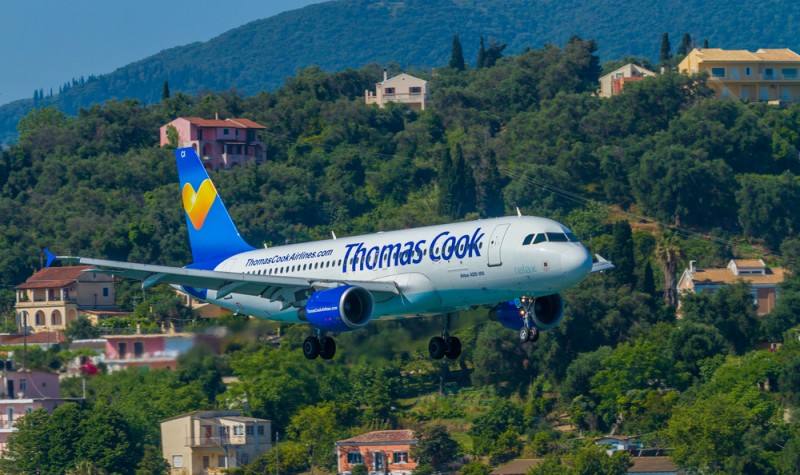Thomas Cook: Blown off course, for now

The best laid plans of mice and men go astray in the middle of a Greek Tragedy and a journey to Valhalla from a Tunisian beach. At 117p a share, some of the cheapest sales revenue in the business; not so much a question of whether to buy but when to buy.
“Troubles, when they come, come not as single spies but in battalions.” These words might well have been included in the latest report and accounts of Thomas Cook Plc., my speculative recovery stock that has suddenly come to resemble not so much a company, as a character in one of those dire classic Greek dramas where endless awful things happen.
After a period of steady progress, we have a reversal into decline, thanks in part to a lone Jihadist gunman on a Tunisian beach who was executing his own trip to Valhalla to collect all those extra bonus points in the shape of virgin brides. (This is surely a market Thomas Cook should be addressing – single, sad male Jihadists wishing to get away from it all to find female companionship in a heavenly spot, much like a two week eternity in Kos; if I may be allowed to indulge in a little gallows humour.)
In addition, Tom Cook’s business has been impacted by the Greek exit hullabaloo and finally by the high exchange rate of the pound sterling which has depressed the value of foreign takings. It is amazing how companies can stumble into bad news and find it difficult to extricate themselves from it. Tom Cook seems to have a Touch of the Tesco’s. The thing is that there is no substitute for progress when you are a share without much asset backing or no dividend payment to put some kind of floor under the share price. That is what makes Thomas Cook speculative, as I have previously pointed out.
The reaction of saying “sod it” and dumping the shares is an understandably human one. However, that spark of objectivity in our breast prompts us to look for good news amongst the wreckage brought by bad news.
The bad news includes the fact that the share price is arguably now on a downward trend that could take it to below 100p before it finds support. So one has to go over the fundamentals to ask the question, “If I buy the shares now, what do I get for my money?”
As pointed out previously, this is not a share price that has the support of a dividend yield or much in the way of net assets; it is the deficiency of such fundamental value which makes the share price particularly volatile. A short time ago I was taking pleasure at its arrival at 160p a share, having travelled upcountry from 142p a share; a useful book value capital of 12.6% over a month or two. Last seen, the share had fallen back to 117p, looking for some branch of fundamental value on which to find traction.
Basically, what the company has is a long established legacy brand name (one of the best in the UK and international holiday business), sales revenue and enterprise value. It remains a speculation but one with promise – and one that is now available at much lower cost, for those who are in the market for low cost flights. Over a year, the share price is 2.7% down whilst the FTSE 100 Index is up 0.24%. Not as bad as one might think, perhaps!
In Thomas Cook you have a business with historic sales revenue £8.6 billion selling at a share price of 117p and on a market capitalisation of £1.84 billion, indicating that an investor is paying only one fifth of historic sales revenue. That is a very low valuation of revenue. In the instance of Saga an investor pays 2.5 times the value of that revenue; in the case of Dignity – a highly profitable company – it is 4.4 times the value of sales revenue; in the case of Mears Group it’s 2 times sales revenue; in other words, a lot of revenue on which not to make a net profit when others are. If the company fails in its effort to reach profitability, those sales could be recycled into a business that can.
Thomas Cook is not a start up. It has £8.6 billion of sales. It does not have to capture market share: it already has it. Consequently, it has an existing balance sheet enterprise value of £5.8 billion. It also had in the last balance sheet £1 billion of cash. It has also got close to break even.
The company will clearly have to absorb the costs of the impact of the Greek and Tunisian events and adjust its holiday offer in light of that. There is uncertainty about the cost of such disruption to carefully laid plans. That is why the share price is now trending down. But it has the stuff with which to eventually reach full recovery. Personally, I would watch the shares for signs of a bottoming out and after having identified that, think about buying some shares on a bad day. This is a speculative investment and a share for those willing to wait for an above average reward on a year’s view.
Comments (0)